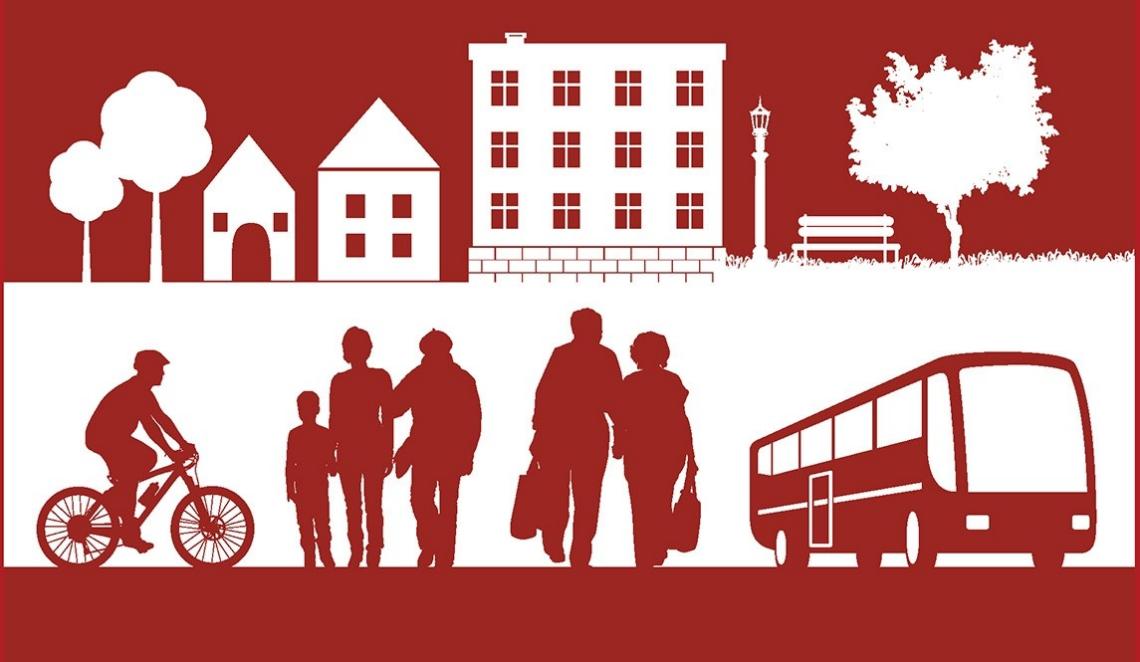AARP Hearing Center


With 46 miles of light-rail, 37 transit stations and a network of interconnected bus routes, St. Louis, Missouri’s Metro Transit system serves thousands of riders a day. As is true of many transit systems, the infrastructure at most of the train and bus stops is little more than a concrete pad for people to stand on and wait.
“Transit stops are generally just a pass-through. People don't come there and engage. They don't feel connected to the community they're passing through. Anytime we create an activation at a station, it brings the community into the station and results in more community connections.”
— Sheila Holm, community outreach director, AARP St. Louis
As part of an effort to reimagine the transit stations as spaces for bringing people together, the local nonprofit Citizens for Modern Transit — along with AARP Missouri, AARP St. Louis and other regional partners — hosted a pop-up demonstration at the North Hanley MetroLink light rail station in Cansonville, a St. Louis suburb.
Funding from an AARP Community Challenge grant helped turn the station’s large parking lot into a temporary retail, entertainment and dining destination. Doing so enabled commuters and passersby to envision the location’s potential and share their ideas.


“Any type of development will add activity at this station," said Kim Cella, Citizens for Modern Transit’s executive director, during her remarks at the event. "It will add eyes on the street. It will make the station more a part of the community.”
Equipped with a supply of Lego-style toy bricks, the St. Louis County Department of Planning encouraged attendees to build models showing the types of amenities they hoped to see at the station. A video camera at a “self-expression stop” let people record themselves sharing their vision for the location. Visitors could also grab a marker and write their ideas on a large banner (pictured above).


Over the next six years, project organizers from Citizens for Modern Transit conducted in-person and online surveys of St. Louis area residents. They hosted community visioning events, design workshops, on-site pop-up demonstrations and walk audits. Outreach focused on residents, transit riders and operators, local businesses, elected officials and other stakeholders.
In 2018 and 2021, AARP recruited placemaking experts from Smart Growth America and Team Better Block to help. Smart Growth America provided guidance about how to enhance and “activate” bus stop locations. It also identified stakeholders for engagement efforts and helped the participants assess the advantages and disadvantages of different types of placemaking strategies. Team Better Block made recommendations for permanent upgrades to the North Hanley Transit Center.
The Results
Led by Citizens for Modern Transit, community engagement informed permanent, themed placemaking improvements at a total of five transit stops — namely, the North Hanley Center, which has the theme “Transit: We All Ride Together,” and the four locations listed below. The enhancements include new seating and landscaping, interactive art and murals, and structures to protect visitors from the sun, rain and snow.
Free Publications
AARP Walk Audit Tool Kit (available in English and Spanish)
AARP Bike Audit Tool Kit (available in English and Spanish)
- Maplewood Stop, MetroBus: The first of Citizens for Modern Transit’s projects brought bus shelters, new benches and an interactive hopscotch game to this large bus stop. Art depicts local landmarks. Designed to act as a “modern front porch,” the site now hosts community programming.
- Emerson Park Transit Center: The nonprofit’s second project is located across the river in Illinois. Transit riders and others are greeted by jazz themed sidewalk art, which pays tribute to local cultural history. The site hosts community events that attract visitors from throughout the region. After the transformation, the district received a $9.75 million infrastructure grant from Rebuild Illinois.
- Belleville Transit Center: Also located in Illinois, this center was upgraded with bike racks, shade structures, benches, planters and public art, all based on the theme "Art Grows in Belleville." After the makeover, the transit district invested $300,000 to renovate a nearby public building.
- 5th & Missouri Transit Center: One of the busiest light-rail stops in Illinois, this activation features a new gathering space with seating, as well as artwork depicting influential residents. Planned redevelopment near the station will include affordably priced housing.
LEARN MORE
- N. Hanley Metro Market Opportunity to (Re)vision Area Around Transit
- Design Concept Approved for Transit Stop Transformation Project
- Transit Placemaking Brochure
- The MPact Podcast: Transit Stop Transformation
- Transit Stop Transformation Project at Emerson Park Transit Center
Caitlin Hillyard is an urban planner and AARP Livable Communities consultant.
Page published September 2023

































































